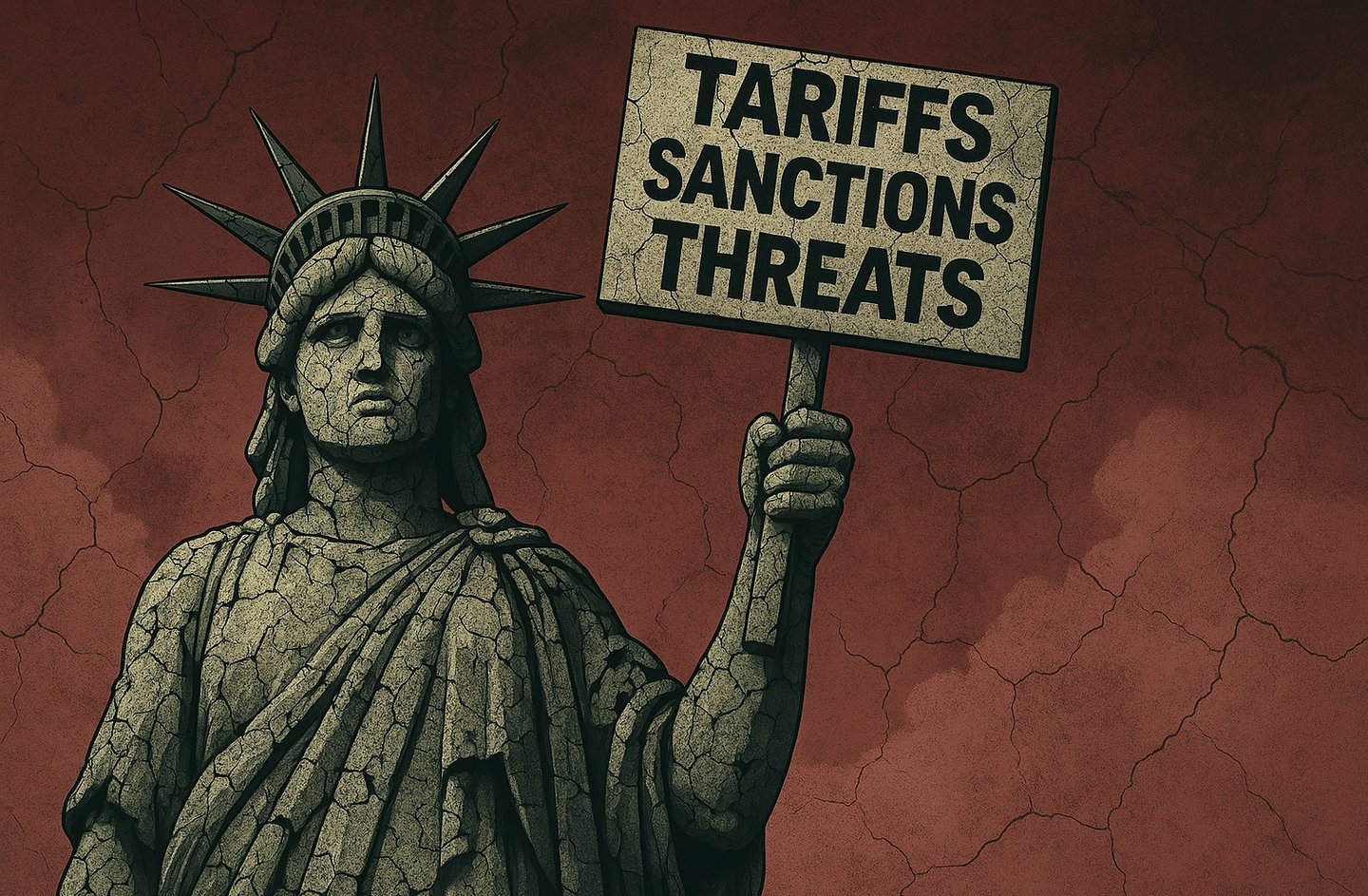Tariffs, Sanctions, Threats — Is This All The US Has Left?
How US Tariffs & Sanctions Are Backfiring What was once a tool of power is now turning into a reason for global resistance. Tariffs, sanctions, and threats by the US and its allies are no longer just hurting targeted countries — they are reshaping the global order. → US consumers face higher prices. → US exporters risk losing global markets. → Developing nations are building their own trade routes, currencies, and alliances. The world is changing. A new, multipolar trade order is rising — with or without the US.
Athish Ravikanth
4/8/20253 min read


Imposing tariffs, economic sanctions, restrictions on US Dollar access, banking systems, and global payment networks have now turned into a modern weapon in the hands of Western powers — mainly the USA and European countries — to dominate other nations and cripple their ability to trade, settle payments, and survive in the global economy. We have clear examples like Venezuela, Cuba, China, Russia, Iran, and North Korea.
But the big question is — are these tariffs really about protecting the American economy?
Or is it actually pushing the world closer to a new global trade order that is less dependent on the US?
Those still preaching democracy to the world are clearly trapped in their colonial mindset — a hangover they never recovered from, even after World War 2. But this is 2025 — the world has changed, and their old bullying tactics are not just outdated... they are now backfiring.
The US government says these tariffs will "bring jobs back" and "protect domestic industries." But the real burden will fall on American consumers — especially low and middle income households.
Why US Tariffs Are Hurting American Consumers - Let’s understand how:
1) Essential Everyday Items Will Become Expensive
Basic everyday products like garments, shoes, toys, furniture, and agricultural items like tea, coffee, or spices are not the core strength of the US economy. These products are labour-intensive and are best produced in countries like Kenya, Nigeria, Vietnam, Cambodia, India, China, Indonesia, and other Asian and African nations because of their affordable labour costs and specialised infrastructure.
Does the US really want its highly-skilled labour to start stitching garments or manufacturing toys? Can it produce these items cheaper than Asia or Africa?
The answer is obvious — No.
Now, because of these US tariffs → the cost of imports will rise → US companies will pass these extra costs on to consumers → Essential products will become more expensive → And low- and middle-income American families will suffer the most.
Low- and middle-income families, who spend most of their earnings on essential goods, will feel the effects of price hikes more than wealthier households, which have more financial flexibility.
2) Global Retaliation: The Silent Threat to US Exporters
After imposing tariffs, many countries are likely to retaliate. And this will seriously hurt US farmers and exporters.
For example, the US exports soybeans, dairy products, and pork to many countries. China is one of the biggest importers of US agricultural products. If China retaliates, US farmers will be among the first to suffer.
Similarly, the US exports many other products globally. And if all these countries start retaliating — it could trigger a global trade war and increase the risk of a global recession. And in such situations, common people across all countries suffer the most.
Even financial giants like JPMorgan have warned that if these tariffs remain in place, both the US and the global economy might slip into recession.
What Should the US Do Instead?
If the US wants to remain a respected global leader, it must focus on building partnerships and signing healthy trade agreements with other nations — based on mutual respect — without the tag of threats or sanctions.
The New World Is Already Changing
The new generation of countries understands the game now.
→ Manufacturing is decentralizing.
→ Trade routes are diversifying.
→ The Global South is talking about its own currency.
→ Nations are signing bilateral trade deals without the US Dollar.
→ Africa, Asia, and Latin America are finding their voice.
This is not 1945 anymore.
Every tariff.
Every sanction.
Every blockade.
Is silently convincing developing nations:
"It’s time to build our own world."
A New Multipolar Global Trade Order is Rising
The world is moving towards a more multipolar order — where no single country, including the US, can dominate unilaterally.
Whether it’s trade in local currencies, regional alliances, or reducing dependency on the dollar — the world is ready for change.
And maybe, just maybe — this is not just about tariffs.
This is about rewriting the rules of global trade, creating a more balanced world, and reminding the US that being a superpower comes with responsibility — not arrogance.
#GlobalTrade #USPolitics #Tariffs #Sanctions #DeDollarization #MultipolarWorld #USvsWorld #TradeWar #GlobalEconomy #NewWorldOrder #USATariff #GlobalShift #NewWorldOrder #WorldEconomy #BusinessStrategy #ImportExport #GlobalOrder #Decentralization #DollarDependency
TRAVEL & TRADE
Bangalore, India